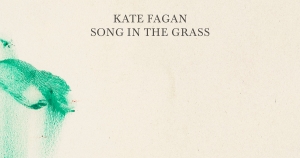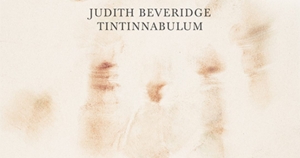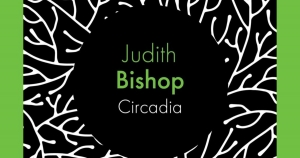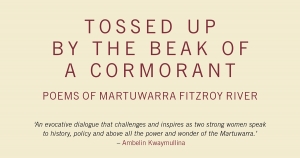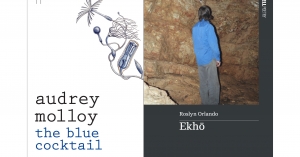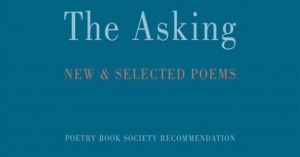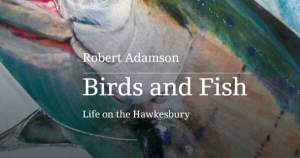Poetry
Australian poetry has always had a particular affinity for birds. This can be either infuriating or indispensable, depending on whom you consult. We might blame Judith Wright for this affinity – or the British pastoral tradition. We might blame the big prizes associated with ecopoems. Or we could just admit that birds are actually really cool and totally worthy of our poetic attention. Kate Fagan intuits all this with Song in the Grass, and she both leans into it and subverts it in equal turns.
... (read more)David McCooey reviews ‘Tintinnabulum: New poems’ by Judith Beveridge
Bells are often associated with the sacred. A resonating bell marks out a space for reverence to inhabit. It calls for attention on the part of the devotee, for a shift in perception from the mundane to the sanctified. A ‘tintinnabulum’ is a small bell, and it is the name that the acclaimed poet Judith Beveridge has given to her latest collection of poems. ‘Tintinnabulation’ – the lingering sound of bells – is a word I first came across in the liner notes to Tabula Rasa, an album of music by the Estonian composer Arvo Pärt that explicitly brings together sound and sacredness.
... (read more)In Poetry’s Knowing Ignorance, Joseph Acquisto borrows a definition of poetry from Phillipe Jaccottet: ‘that key that you must always keep on losing’. Attempting to know its subject, poetry reveals that there is always more to know. But the French poet’s metaphor, for Acquisto, does not mean ‘simple contingency’. It suggests ‘a complex play of certainty and doubt … that actively resists coming to a conclusion’. We might say that poetry expresses the friction in human experience between time and permanence.
... (read more)Robert Wood reviews ‘Tossed up by the Beak of a Cormorant’ by Nandi Chinna and Anne Poelina
In her fifth full-length poetry collection, Tossed up by the Beak of a Cormorant, Nandi Chinna continues to write about her engagement with the natural world. Authored in collaboration with Wagaba Nyikina Warrwa Elder, Anne Poelina, this book sees her move north and west into the Kimberley. This is where the Martuwarra (Fitzroy River) runs through Bunuba, Gooniyandi, Nyikina, Walmajarri, and Wangkatjungka Country. It is a place that poetry readers will recognise from the geographically proximate classic Reading the Country (1984) by Paddy Roe, Stephen Muecke, and Krim Bentarrak, Ngarla Songs (2003) by Alexander Brown and Brian Geytenbeek, and the ethnopoetic George Dyungayan’s Bulu Line (2014), edited by Stuart Cooke. With that in mind, Chinna’s Kimberley is a place that is remote for many readers, but not entirely unknown.
... (read more)Sam Ryan reviews ‘The Blue Cocktail’ by Audrey Molloy and ‘Ekhō’ by Roslyn Orlando
Identity is a hard thing to define. What makes us who we are? We have social identities, shaped by our affinities and proximities to social groups, cultural identities informed by values, languages, rituals, traditions, and a whole multitude of different phenomena that combine to make us who we are.
... (read more)Felicity Plunkett reviews ‘The Asking: New and Selected Poems’ by Jane Hirshfield
Jane Hirshfield writes a poem on the first day of each year. ‘Counting, New Year’s Morning, What Powers Yet Remain to Me’ is one of the new poems in The Asking, along with poems selected from nine collections published since 1982. It begins with a question the world asks (‘as it asks daily’): ‘And what can you make, can you do, to change my deep-broken, fractured?’
... (read more)The title of Omar Sakr’s latest collection references the Covid pandemic and comes from his prose poem ‘Diary of a Non-Essential Worker’. It also reminded me of Plato’s banning of the poets from his ideal republic, and Auden’s line that ‘poetry makes nothing happen’. Throughout Non-Essential Work, Sakr explores the limits of poetry and its function in society, questioning the value of his own art, letting us in on his doubts. In the poem ‘Your People Your Problem’, he asks: ‘What is a song worth singing here? / The silenced are listening.’ Despite these doubts, or perhaps because of them, he has achieved a powerful collection of lyric poetry, simultaneously political and intimate.
... (read more)Simon West reviews ‘Birds and Fish: Life on the Hawkesbury’ by Robert Adamson and edited by Devin Johnston
In the year leading up to his death, the poet Robert Adamson (1943-2022) gathered together a selection of his work that focused on one of his enduring passions: the birds and fish of the Hawkesbury River, beside which Adamson lived much of his life. Adamson was best known for exploring this passion in poetry, but the pieces collected in this new book are works of prose and include selections from Adamson’s autobiography Inside Out (2004), and from his late collection, Net Needle (2015). They also include material that is likely to be less familiar to readers, pieces published in the magazine Fishing World, and extracts from a journal Adamson kept between 2015 and 2018 titled ‘The Spinoza Journal’.
... (read more)Mykaela Saunders reviews ‘Woven: First Nations poetic conversations from the Fair Trade project’ edited by Anne-Marie Te Whiu
The concept of Woven, a Fair Trade project from Red Room Poetry, seems simple but the reality is complex: one local First Nations poet is paired with another First Nations poet from another continent, and together they create a poem. This is an ambitious undertaking for the poets themselves and especially for the editor, Māori poet Anne-Marie Te Whiu, who should be commended for stewarding this project through the last few tumultuous years. The resulting book is a gorgeous tapestry of weavings from some fine poets.
... (read more)David McCooey reviews ‘The Penguin Book of Elegy: Poems of memory, mourning and consolation’ edited by Andrew Motion and Stephen Regan
In the famous opening sequence of the 1946 film A Matter of Life and Death, an RAF pilot, flying his burning Lancaster bomber over the English Channel, talks with a radio operator at a nearby English base. Apparently facing certain death, the pilot quotes Sir Walter Raleigh’s ‘The Passionate Man’s Pilgrimage’, a poem allegedly written just before its author’s execution in 1618. ‘Give me my scallop shell of quiet, / My staff of faith to walk upon,’ the pilot recites, amid the roar of his stricken aircraft.
... (read more)
